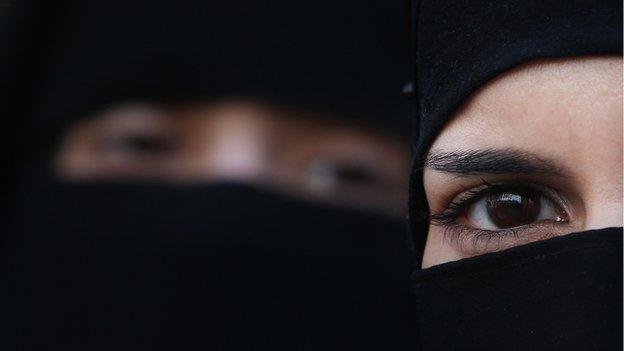Head teachers against face veils in school
- Published
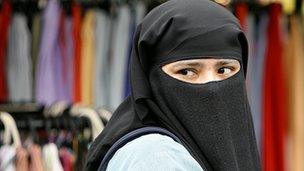
Schools and colleges set their own rules for the type of veils or any other type of clothes that are allowed
Veils that prevent teachers from seeing pupils' facial expressions are "not suitable in school", says head teachers' leader Brian Lightman.
He was responding to Home Office minister Jeremy Browne's call for a "national debate" about Islamic veils in public places, such as schools.
But Mr Lightman, general secretary of the Association of School and College Leaders, says there is no need for any government regulation.
Schools set their own dress code rules.
And Mr Lightman says such decisions should remain the responsibility of head teachers and governing bodies, working with parents and the local community.
"Many of our schools have students from many different faiths and backgrounds which adds to the richness of their communities.
"While schools understand and are sensitive to dress requirements for students from particular religious communities, including the Islamic head covering, it is widely understood that teachers need to see students' facial expressions which is why full face veils are not suitable in school contexts.
"Decisions about school uniform are and should remain the responsibility of individual heads and governing bodies. This is not a matter which requires central government regulation."
However head teachers say that this had not been a big issue for schools and they are not aware of any schools where pupils have had to be discouraged from wearing a veil covering their face.
Local decisions
A further education college, Birmingham Metropolitan College, last week dropped a ban on pupils wearing face veils.
It had originally said hoodies, hats, caps and veils must be removed so students were easily identifiable for safety reasons.
The Federation of Student Islamic Societies (FOSIS) had said the proposed ban had been "massively divisive".
"The fundamental rights to freedom of religious expression are at stake here and this sets out an extremely dangerous precedent not only for the Muslim community but for members of all faith backgrounds," the president of FOSIS, Omar Ali, had warned.
The Association of Colleges says that any colleges facing the sensitivity of such bans should "carefully consider whether the proposed action is a proportionate means of achieving a legitimate aim, for example student safety or, given colleges are learning environments, effective communication between staff and students".
What pupils are allowed to wear is a decision for individual schools and colleges, there are no national regulations or prohibitions.
So rules about the wearing of Islamic veils - and any other type of clothing - are determined institution by institution.
If there were to be a ban on a particular form of dress, such as a full-face veil, it would mean a significant change in policy.
"Schools and colleges have the freedom to set their own uniform policies," says the Department for Education, responsible for schools in England.
There is no legislation governing school uniforms or pupil appearance, such as hair-styles, jewellery or make-up.
There is guidance encouraging schools to have a uniform, saying that it can "ensure pupils of all races and backgrounds feel welcome; protect children from social pressures to dress in a particular way; and nurture cohesion and promote good relations between different groups of pupils".
But how this is interpreted is up to individual schools and their governing bodies.
- Published16 September 2013
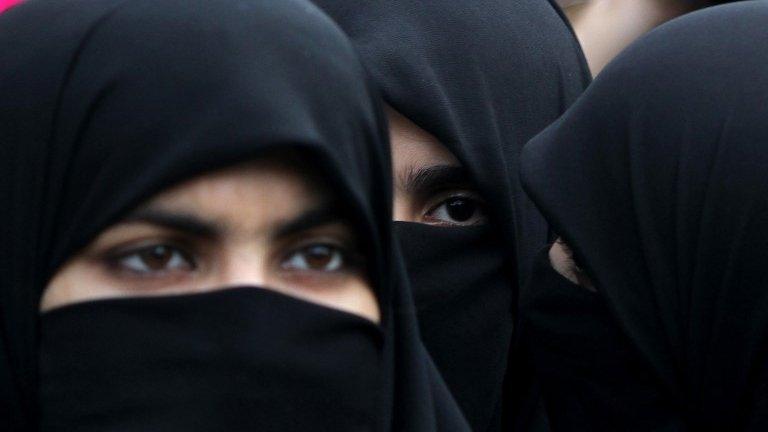
- Published12 September 2013
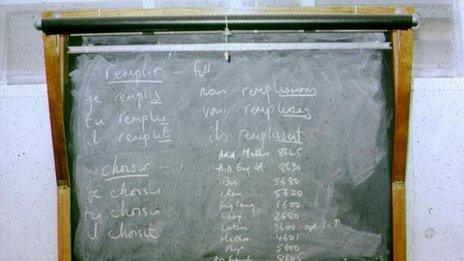
- Published23 July 2011
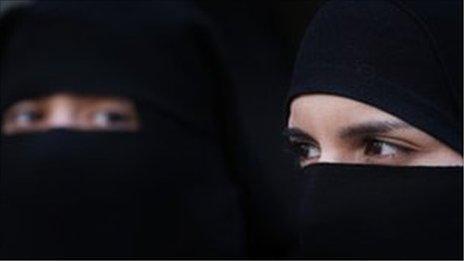
- Published31 May 2018
